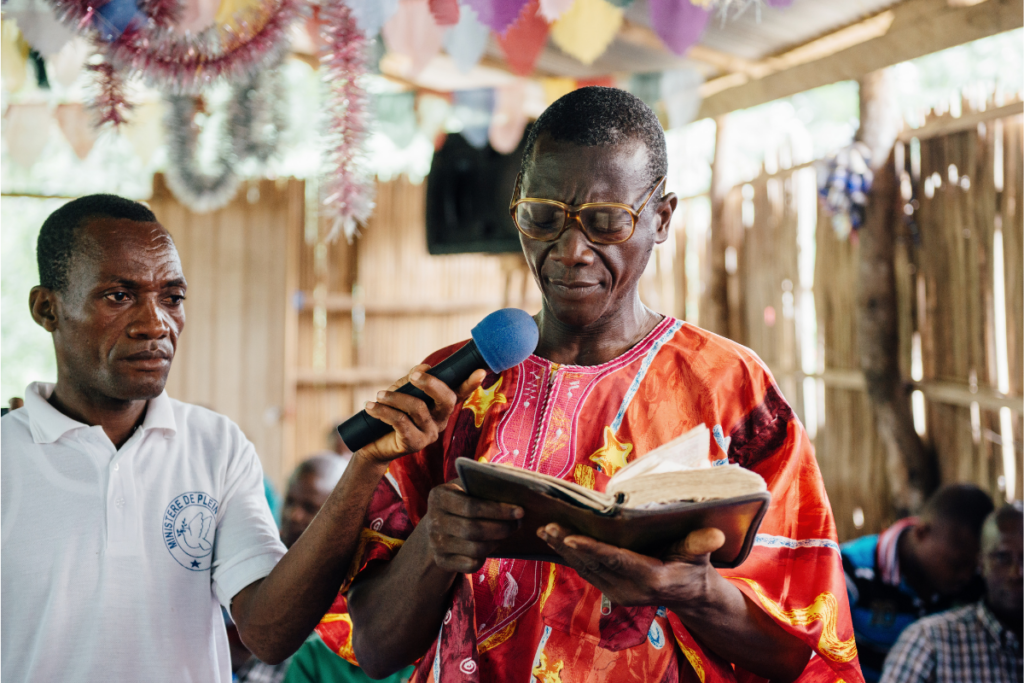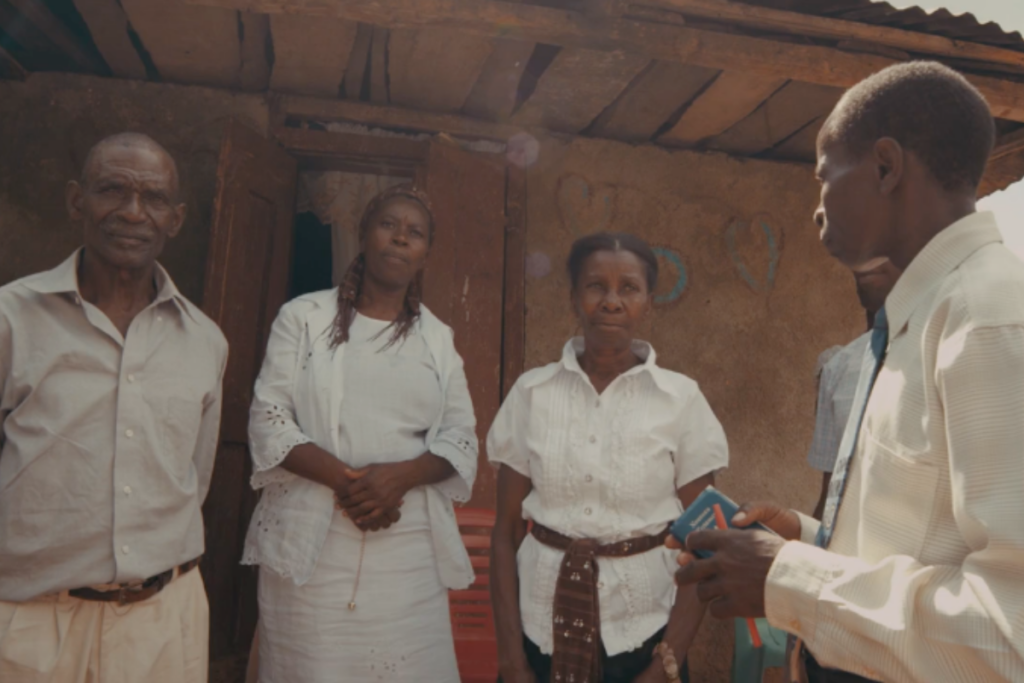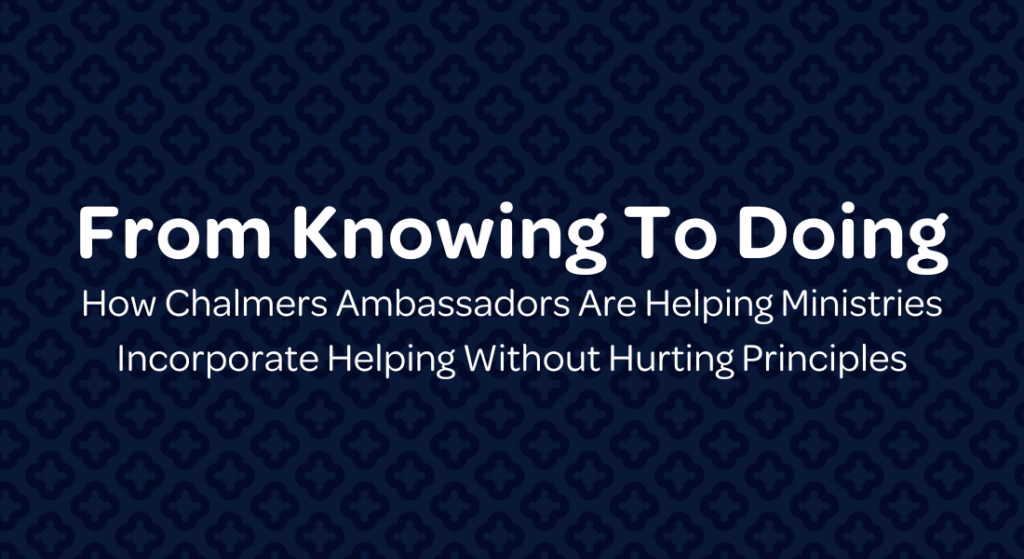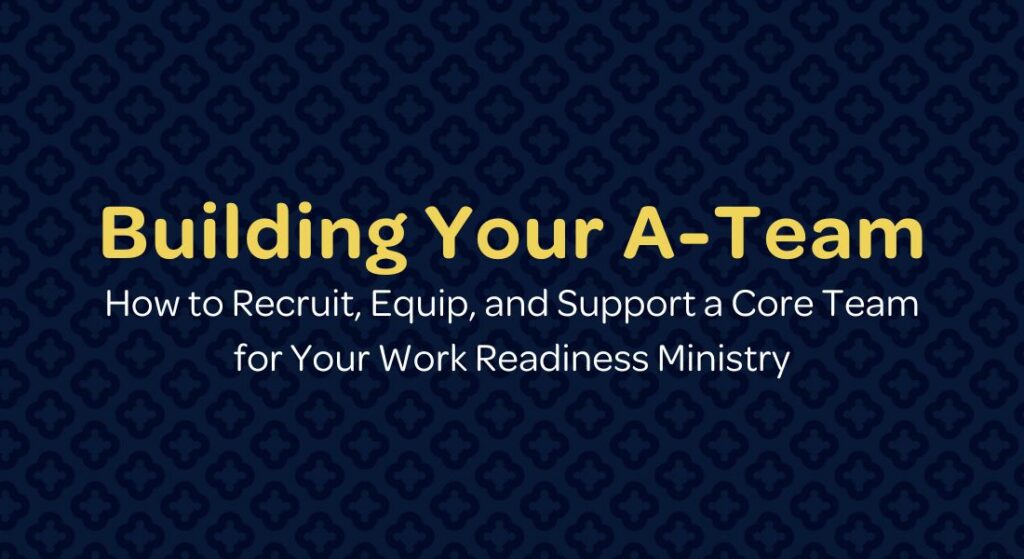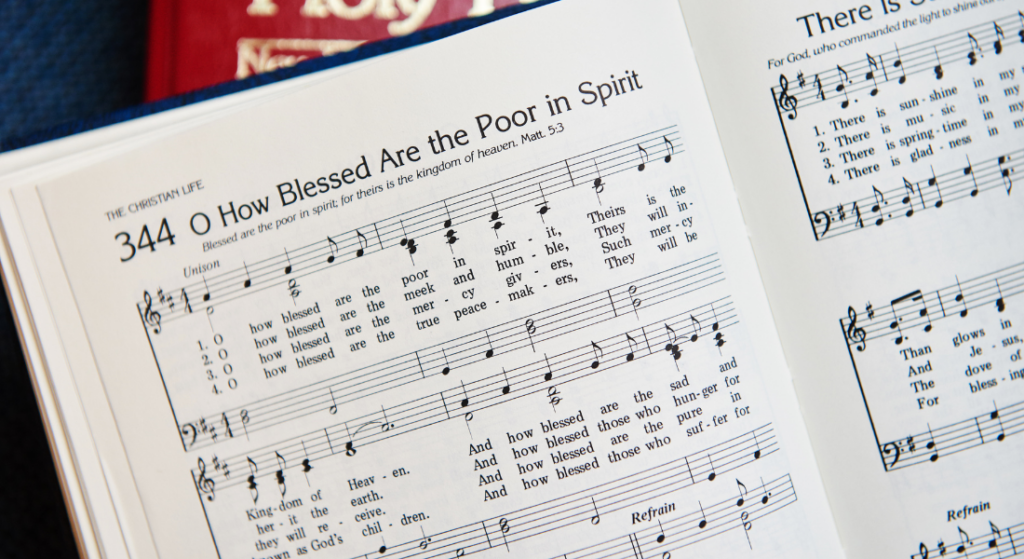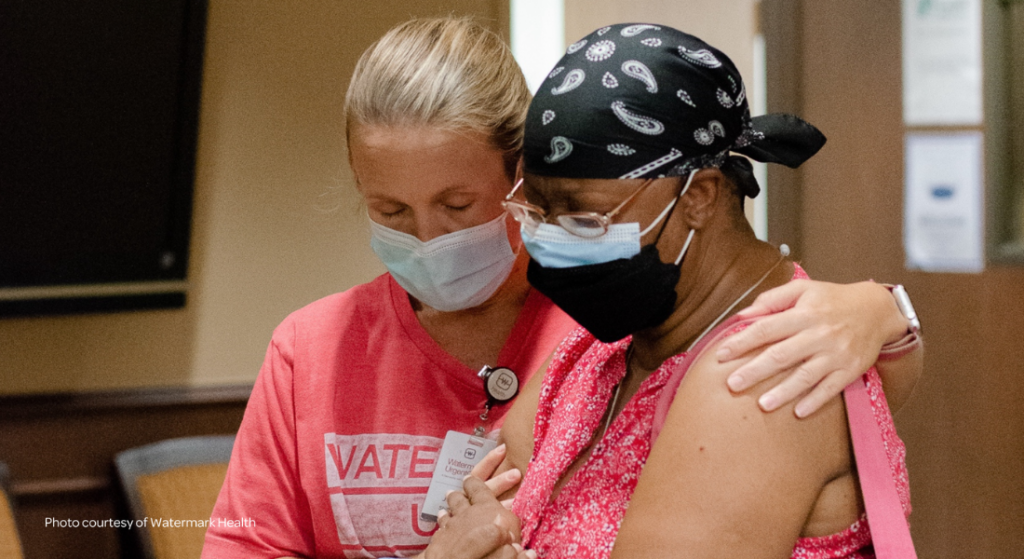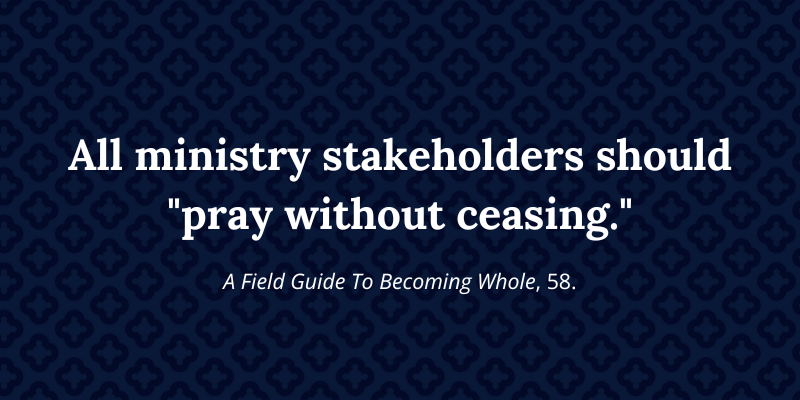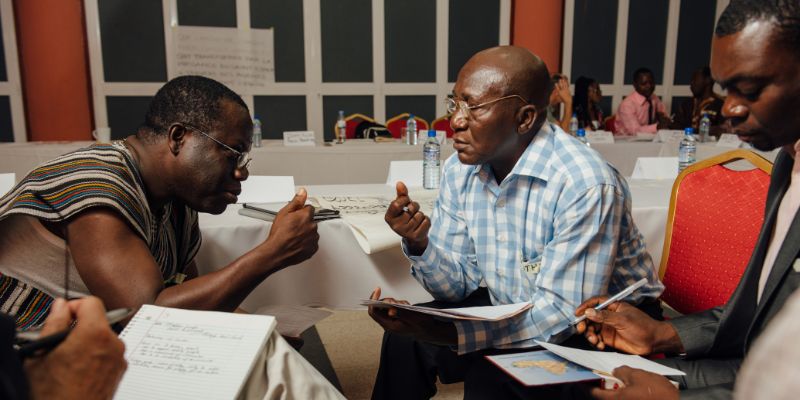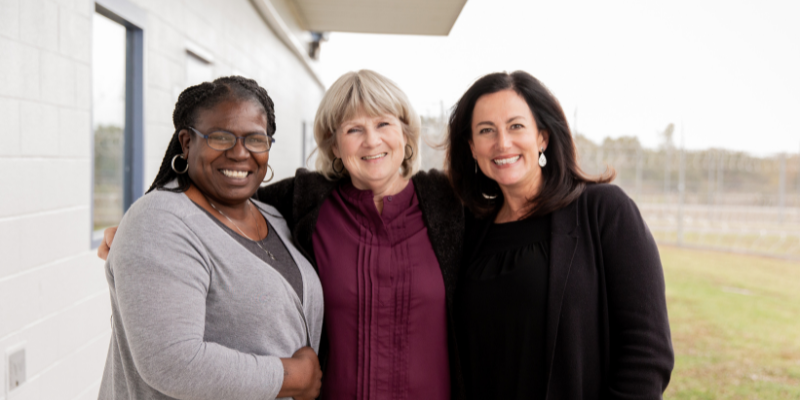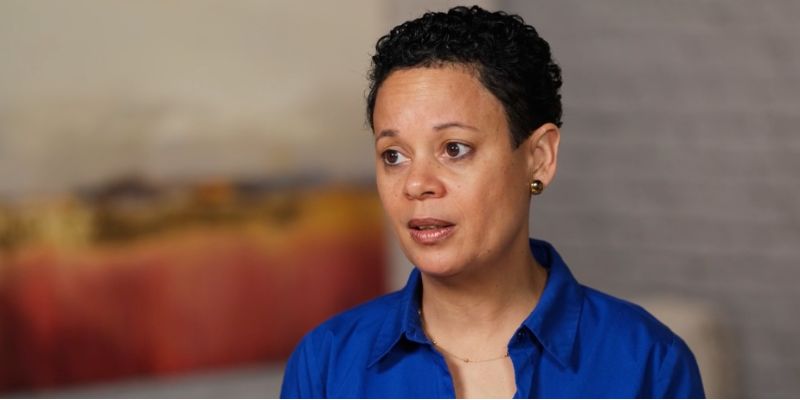Search results for: PEGACPSA23V1 Dumps Torrent 🥥 Test PEGACPSA23V1 Engine Version ⚗ Best PEGACPSA23V1 Preparation Materials ⏬ Search for 《 PEGACPSA23V1 》 on 【 www.pdfvce.com 】 immediately to obtain a free download 🍏Dumps PEGACPSA23V1 Reviews
You’re Not the Hero: Avoiding Paternalism in Short-Term Missions
Healthy, effective approaches to addressing material poverty start by recognizing and celebrating the gifts and resources God has already placed in a community. This can include natural resources, people, families, neighborhood associations, schools, businesses, governments, or individual skills.
Read MoreBefore You Go: Defining Success in Short-Term Missions
As the summer season approaches, many church groups in the U.S. are preparing for short-term mission trips, whether inside or outside the country. They may be thinking through the details of their plans, making travel arrangements and packing lists and prayer sheets, and raising funds.
Read MoreWhy Work Matters
God’s passion for work is a theme found throughout Scripture. One example found in the Old Testament is gleaning laws, which we explored in previous posts (HERE and HERE). In addition, Scripture also has a lot to say about why work matters, why justice for workers matters, and why we should care for those who are vulnerable.
Read MoreFrom Knowing To Doing: How Chalmers Ambassadors Are Helping Ministries Incorporate Helping Without Hurting Principles
Earlier this week Justin Lonas, Director of Foundational Products at the Chalmers Center, hosted a webinar with two of our Ambassadors and two ministries they recently served. During the conversation, Justin shared that the basic premise of the Ambassador program is discipleship. Our purpose in training and sending out Ambassadors is to support churches and organizations as they walk alongside and empower people in their community who are facing the challenges of material poverty.
Read MoreBuilding Your A-Team: How to Recruit, Equip, and Support a Core Team for Your Work Readiness Ministry
Last week, Shay Bassett, Director of the Work Life program at the Chalmers Center hosted a webinar on Building Your A-Team: How to Recruit, Equip, and Support a Core Team for Your Work Readiness Ministry. She shared about why work matters, the barriers people face to finding and keeping sustaining work, and why we need a new story about work.
Read MoreRepenting of the Health-and-Wealth Gospel: Lessons from Kibera
In the heart of Nairobi, Kenya, lies one of Africa’s largest slums—Kibera. Conditions there are harsh. People live in makeshift structures, surrounded by open ditches filled with human and animal waste. Opportunities for jobs and education are severely limited, as is access to healthcare, food, and clean water.
Read MoreLiving within Your Limits: Building Partnerships for Ministry
As you begin working on launching or refining a church benevolence or other community development ministry plan, you’ll quickly discover you can’t do it alone. Your church or organization can’t provide everything that everyone is going to need on this journey, nor should it!
Read MoreEpiphany and Poverty Alleviation
Epiphany also reminds us that our gifts (assets, skills, experiences, and callings) are rightly offered up as worship to the King of Kings. All the ministry efforts we undertake will fall flat if we seek to serve others for our own sake. We can truly love our neighbors as ourselves when we connect our love and service for others with our worship of the God who created us both and who sustains us all.
Read MoreFlourishing through Holistic Healthcare
Inspired by our book, When Helping Hurts, Watermark Health, a nonprofit affiliated with Watermark Church, has designed its three clinics to instill value and promote dignity among their patients. The majority of their patients are uninsured and from marginalized communities who otherwise lack access to adequate medical resources. Located near a large refugee resettlement area, their original clinic has had patients from 123 countries.
Read MoreGoing Beyond the Four Walls of the Church: The Impact of Community Ministry
Local churches often make a significant mistake when it comes to helping those in poverty. They sometimes create divisions in their efforts that aren’t really necessary, according to Scripture. When we split up the act of spreading the message of God’s transformative power (evangelism) and the act of serving others or providing practical life skills (service or technical programming), we give the wrong impression that the world is fragmented. We make it seem like God’s work is separate from helping people in need.
Read MoreHelping People Experience Financial Stability
As the Director of Programs for Restoration House in the Knoxville area, Lori Haskell has years of experience working with single moms who find themselves in difficult circumstances, especially when it comes to finances. They want to be financially self-sufficient but often lack the training and support they need to get there.
Read MoreWeaving Ministry Design Principles into Their DNA
Branch15 is a ministry in Oklahoma City that serves women in critical, life-controlling situations. They provide their clients with transitional housing and robust rehabilitation classes. Through contextualized programs centered around connection, care, authenticity, and empowerment, they fulfill their mission of fostering healing and restoration in the lives of their clients—that every woman who enters Branch15 might experience “fresh starts, pure hope, and amazing grace.”
Read MoreGod Is At Work—Even In Our Mistakes
The work of creating a benevolence ministry that provides material assistance to those in need without creating or perpetuating unhealthy dependencies is challenging. It’s important for churches and ministries pursuing this work to come from a position of humility. Approaching church benevolence with the right posture should drive us to the cross, as it creates the opportunity for us to see our own sin and our own inadequacy. We cannot independently generate change in systems, people, and communities, but that does not hinder the work of the Holy Spirit.
Read MoreReframing Our Ministry Practices in Light of God’s Story of Change
Resuming our journey through the Ministry Design Principles, we turn our attention to replacing destructive formative practices in our fundraising, in our relationships with stakeholders, and in our marketing strategies. A ministry working to walk in the path of God’s story of change pursues practices that treat all stakeholders as a community of broken yet restored priest-rulers, people who are relying on the power of Christ’s death and resurrection to jointly steward their wide range of gifts.
Read MoreCombating False Gods and False Stories in Ministry Design
We’ve been sharing Ministry Design Principles in a series of posts (you can read last week’s here). All these principles can, in some sense, be bundled under 6 aspects of holistic poverty alleviation—1) Forming the kingdom community, 2) addressing false stories of change, 3) addressing broken practices, 4) addressing broken individuals, 5) addressing broken systems, and 6) addressing demonic forces.
Read MoreWhy We Need Ministry Design Principles
Ministry focused on addressing poverty is fundamentally about promoting change. It’s about helping people and communities move to a better situation than their present one.
Read MoreYou’re More Than Your Past
As someone previously incarcerated, Chanda knows first-hand how broken relationships are at the core of poverty. It’s why she continues to show up for incarcerated women with biblical truths and practical resources — like Faith & Finances Inside.
Read MoreRecruiting and Equipping Effective Volunteers
When it comes to poverty alleviation ministry, it’s not uncommon for new volunteers to feel excited about getting involved. They can’t wait to make a difference. But if these volunteers aren’t well-prepared for the work they’re joining, over time, they will likely begin to feel overwhelmed and discouraged. They realize that there are more needs than resources and there is always something else they could do to help. Walking through deep valleys with people wrestling with material poverty, the road is often rough and the way forward isn’t always clear. These sorts of challenges are part of the reason that The Chalmers Center regularly talks about the importance of training volunteers.
Read More

